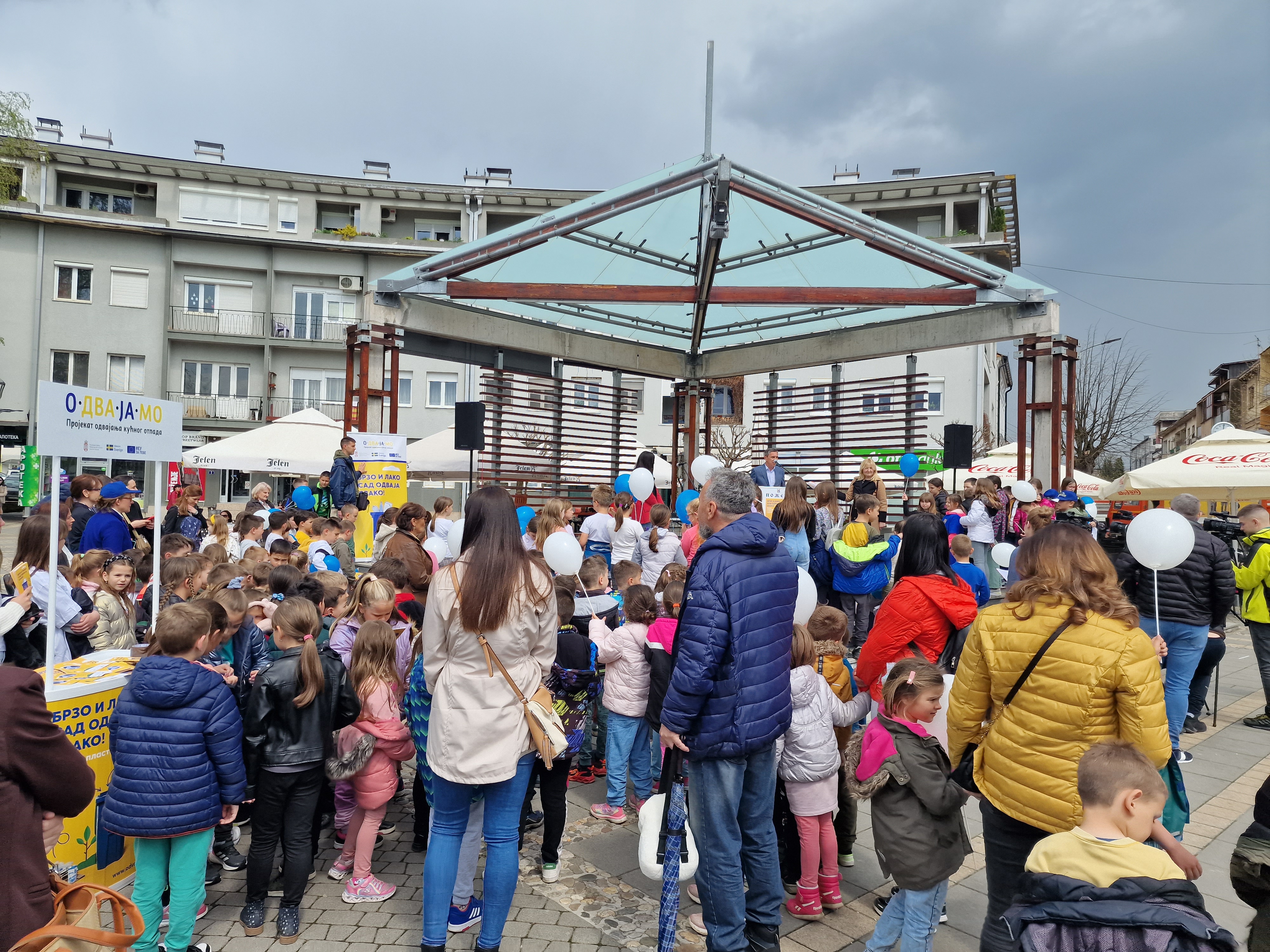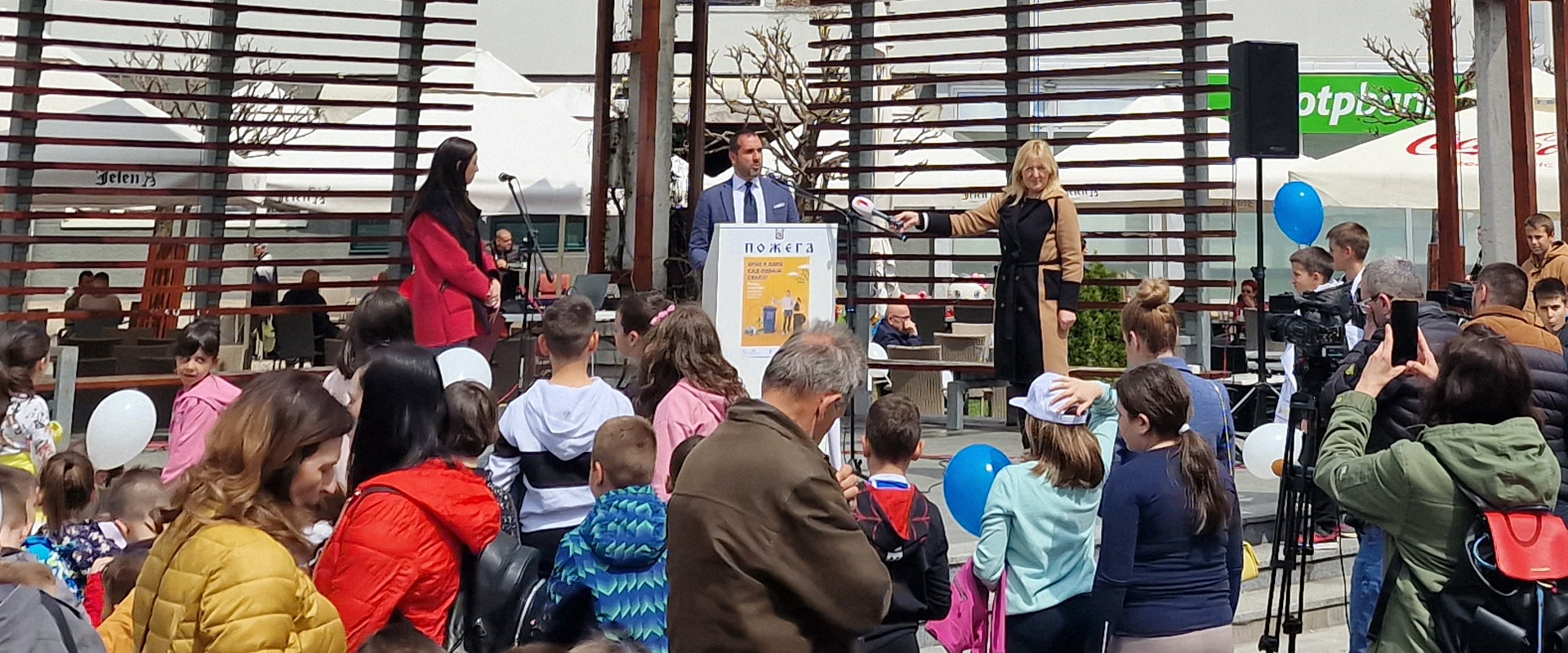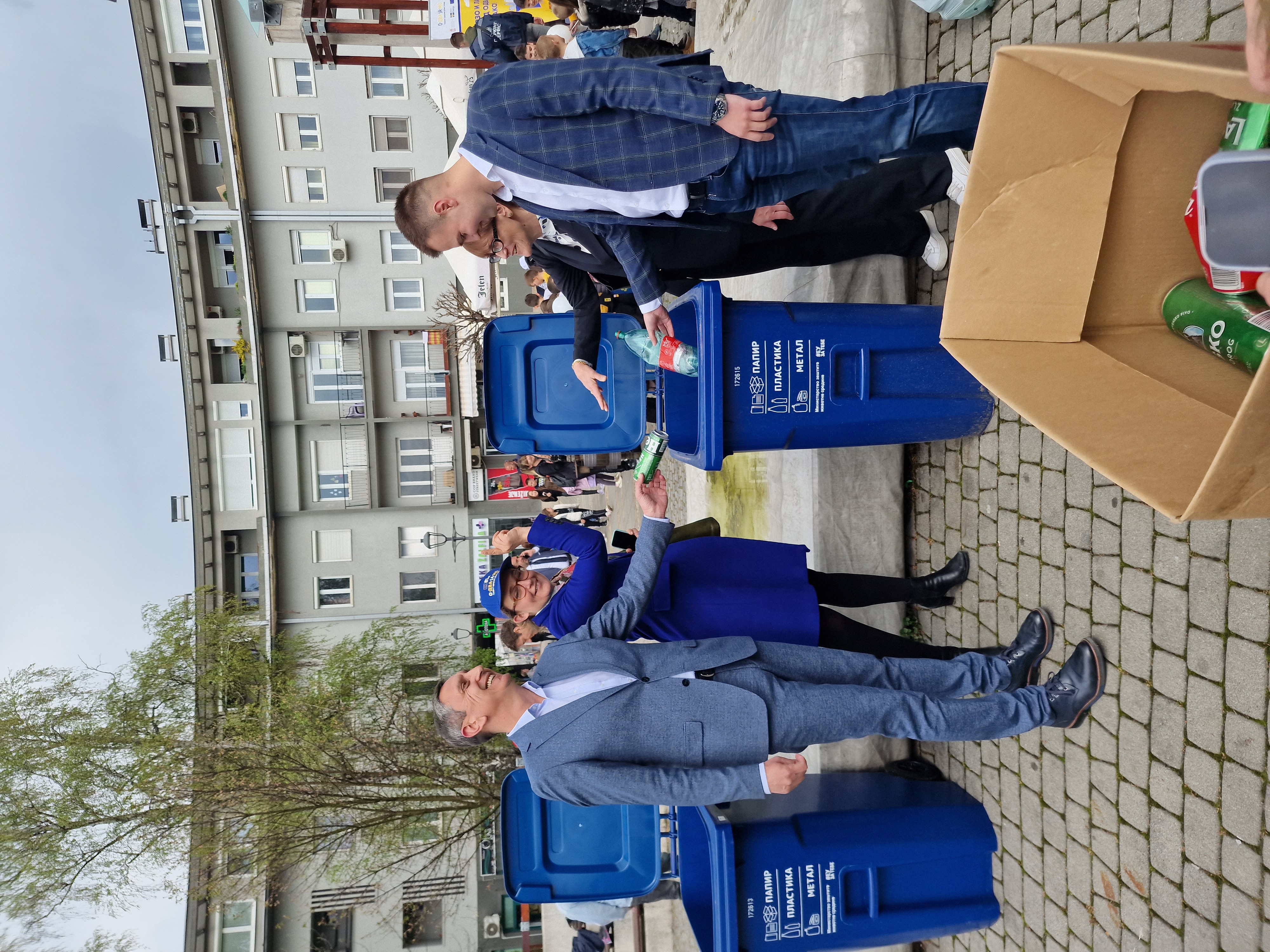On April 20th, the implementation of the Project for Household Waste Separation "O-DVA-JA-MO" was officially launched at Trg Slobode in Požega. The Project is implemented in 17 municipalities in Serbia, and the goal is to recycle part of the waste generated in households, thus reducing the amounts of waste that end up in landfills, and increasing the recycling rate in these municipalities to 15%.The "O-DVA-JA-MO" project is implemented with the support of the Ministry of Environmental Protection of the Republic of Serbia with the help of the European Union and the Embassy of Sweden.
The project provides expertise and equipment for local authorities in order to design and improve waste separation systems at the point of origin.With the investment of the European Union and the Government of the Republic of Serbia, 26 vehicles for the transport of recyclable waste, more than 90,000 containers and bins and a public awareness campaign were provided.The European Union financed this project with 6 million euros, and Serbian national and local authorities are participating in the project with an investment of 1.8 million euros.

Technical support was provided by the Embassy of Sweden to support the national authorities and all 17 local self-governments in the successful implementation of the Project for Household Waste Separation. Local governments and public utility companies are fully responsible for providing new services.
Through this project, Požega received a new 20m3 waste collection vehicle, 38 containers and 1200 bins for dry recyclable waste. The promotion of the project was attended by local self-government officials as well as representatives of the Ministry of Environmental Protection and the Embassy of Sweden. The official start of the implementation was marked by the ceremonial insertion of plastic bottles, cardboard and cans into buckets and containers, and the officials were joined by the youngest fellow citizens of Požega and eco ambassadors.
The assistant minister, Mr. Dušan Čarkić, first addressed the attendees, presented the project and explained why the separation of household waste is important for Požega and for the whole of Serbia."The O-DVA-JA-MO project is implemented in 17 municipalities in 4 regions and our goal is to carry out primary waste separation at the point of origin in order to deliver as little waste as possible to landfills and use as much waste as possible as recycling material. This is a pilot project, and it is only one of the measures implemented by the Ministry of the Environment in the field of environmental protection. In addition to this, together with our colleagues from the municipality of Požega, we are working on the rehabilitation of the existing landfill, we are working on the construction of a transfer station, and we are working on replacing boilers in individual households," said Mrs. Čarkić.

Karin Macdonald, head of the cooperation and development sector at the Swedish embassy, spoke about how Sweden and the European Union have been helping Serbia to introduce changes in the area of the environment and waste management for years."This O-DVA-JA-MO project started last year and helps individual households and small businesses to introduce recycling activities. In just four months, this project enabled the collection of more than 1,000 tons of recyclable material, and your municipality contributed to this impressive result. Today we are launching this project ODVAJAMO in your municipality, but this event is not important only for this day, recycling should be done every day and it is the responsibility of everyone to put in their effort so that the project will be successfully implemented," underlined Mrs. Macdonald.

Representatives of the local self-government and PUC called on citizens to continue separating waste and protecting the environment in the local community and expressed the hope that this project will yield positive results and change citizens' awareness of proper waste sorting.
The Waste Management Program in Serbia 2022-2031, adopted by the Government of Serbia as part of EU accession, aims to improve the municipal waste management system through an increased rate of recycling, reduced disposal of biodegradable waste in landfills and reduced disposal of waste in unhygienic landfills.